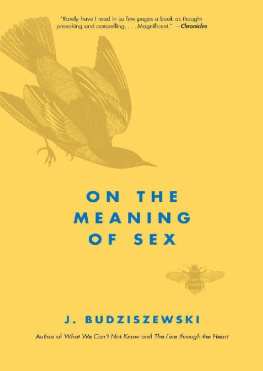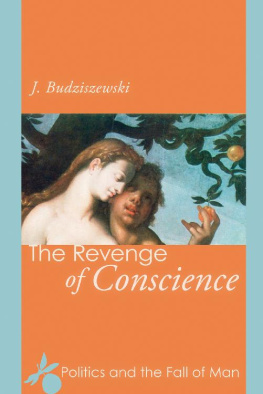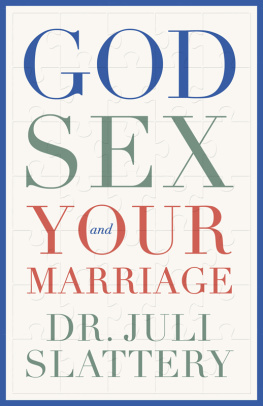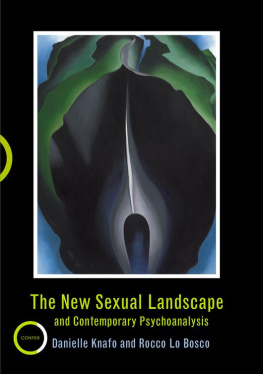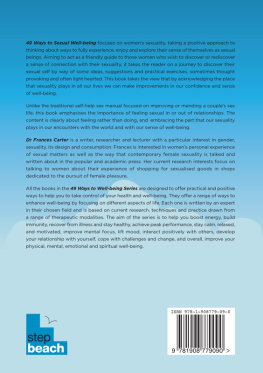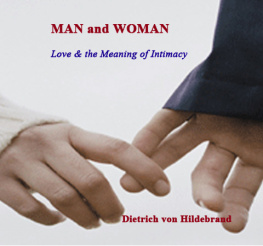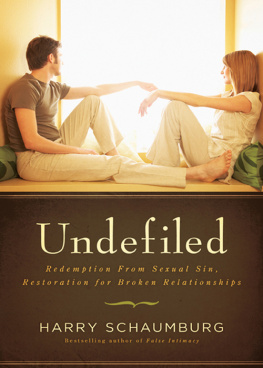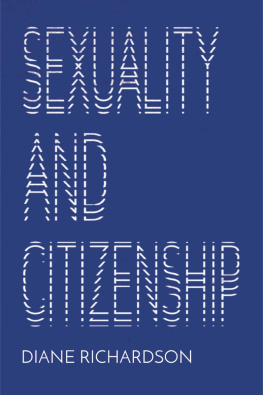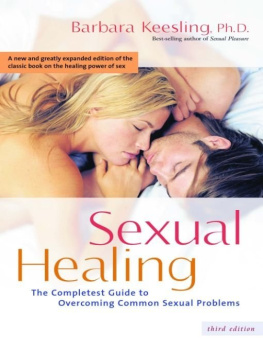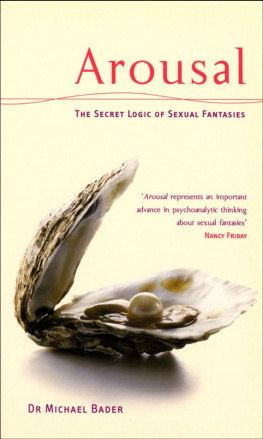On the Meaning of Sex
J. Budziszewski
WILMINGTON
, DELAWARE
There He taught me the science full of sweetness.
John of the Cross
To Sandra
Contents
Does Sex Have to Mean Something?
Where have You hidden Yourself ,
And abandoned me in my groaning, O my Beloved?
You have fled like the hart ,
Having wounded me.
I ran after You, crying; but You were gone.
John of the Cross, Spiritual Canticle
O ne day in class, there loomed up into the discussion of old books the barren playland of Aldous Huxley's Brave New World , that posthuman wilderness where it is the duty of people to be infantile, even if they wish not to bea wish that conditioning makes impossible for all but a few. Most of the students had read the book, and remembered passages like the following:
It suddenly struck me the other day, continued Bernard, that it might be possible to be an adult all the time.
I don't understand. Lenina's tone was firm.
I know you don't. And that's why we went to bed together yesterdaylike infantsinstead of being adults and waiting.
But it was fun, Lenina insisted. Wasn't it?
Oh, the greatest fun, he answered, but in a voice so mournful, with an expression so profoundly miserable, that Lenina felt all her triumph suddenly evaporate. Perhaps he had found her too plump, after all.
Though not by precisely the same methods as in Huxley's world, students these days are pretty thoroughly conditioned, so most were on Lenina's side. Why anyone should feel anything amiss in such a world was a mystery to them. If everyone is having fun, then what could be the problem?
But Harris, in the first row, disagreed. In fact, he was revolted. Those people are disgusting, he said.
Thinking that I got his point, I gave a premature nod. Sex ought to mean something, I remarked.
No, he replied, to my surprise. Sex doesn't always have to mean something.
That threw me a little off balance, and before I could shake myself out of teacher-trance, someone else spoke up, turning the discussion in another direction, and the moment was lost.
After class ended, when students were filing from the room, I asked Harris to wait a moment. Your comment about Huxley's peopleobviously I misunderstood what you were getting at. But if sex doesn't have to mean anything, then why did they revolt you?
The way they make babiesin factories, without parents, he replied. The whole thing about decanting them from glass bottles. That's what's disgusting. Unfortunately, we both had someplace else to go, and as though we were acting out a parable of Huxleyan disconnection, for a second time the contact was broken.
That was a failure of teaching. I've tried to make up for it since then, and this book is part of the attempt.
One might ask: So what if the contact failed? Did that matter? After all, the puzzle had been cleared up anyway, hadn't it? I asked Harris what he had meant, and Harris told me. Babies shouldn't be industrially produced, check. But sex itself doesn't have to mean anything, check. We might disagree about the second point, but at least we both knew what he'd been getting at.
But did we both know? I don't think we did. What issue had our brief exchange of comments really presented?
At first I thought that the issue was merely whether sex has to mean something. My answer to the question was Yes, Harris's No.
But the real question wasn't that at all. It was how sex can both mean something, and also not mean anything. To be even more precise, it was how sex can both always mean something, and also never mean anything. I draw this conclusion because Harris's opinion was at variance with his emotion.
He said sex doesn't have to mean anything. If it doesn't have to mean anything, that means it doesn't ever mean anything reallyat least it doesn't ever mean anything in any way that could restrict our choices. Behind sex is nothing but a void. And yet, for some reason, Harris was revolted by the factory production of children in canisters. The void was not empty after all. For if it was really a void, then how could he be revolted? How could one be disgusted by nothing?
I hear the objection already. You're getting worked up over nothing, Professor. Feelings don't make sense. Is that so? I give people more credit than that. Every feeling makes some kind of sense, even if only confusedly. So I ask again: Why was Harris revolted?
Presumably, what bothered him about the assembly-line production of babies was that it sliced the conjugal union of the mother and the father out of the picture. But if sex doesn't have to mean anything, then so what if that was sliced out? It shouldn't have bothered Harris unless procreation is something that ought to take place in the loving embrace of the parents. But if so, then in the depths of his mind, didn't he recognize that sex means something after all? In fact, didn't he recognize that it means at least two connected thingsan aspiration to children, and an aspiration to union?the act by which babies are made, and the act by which their parents are united? Moreover, since Harris was revolted that the aspiration to children could ever be separated from the aspiration to union, it would seem that he recognized that these two meanings aren't merely sometimes joined together, but that they are joined whenever we have sex. In short, although he reported that sex doesn't always have to mean anything, his loathing for factory production of children told the story that it means something already, and it means it all the time.
The fact that he asserted the opposite opinion doesn't wipe out our conclusion. It only makes it more mysterious. Apparently sex means something to us even if we don't admit to ourselves that it does.
Let us look a little more closely into this mystery. What did Harris think he meantwhat was he trying to get atwhen he said that sex doesn't always have to mean something? One of the reasons I am interested in the answer to that question is that it seems to me that a lot of people are trying to get at the same thing.
One might be tempted to think that he wasn't getting at anything in particular, that he was just confused. No doubt he was confused, but airy dismissals of this sort don't treat people with the respect that their confusion deserves. It is childish to dismiss someone's thoughts as unworthy of consideration just because they are mixed up; human beings are always trying to get at something, even when they don't know what it is. The oft-derided truth that man is a rational being does not mean that he always thinks clearly. But he always thinks something, so what, in this case, was that something?
If I had questioned Harris furtherWhat do you mean when you say sex doesn't have to mean anything? Do people engage in it for no reason at all? Does it just happen, like a gurgle in the stomach, a can rattling down the street, or a screen door blowing shut in the breeze?perhaps he would have conceded that sex does have trivial meanings: a little pleasure, a little fun, a little relief from boredom and desire. This wouldn't be much of a concession. Sex would mean something, but only in the way that eating a peanut means something, chewing on an ice cube means something, scratching an itch means something. There would be no more call to rhapsodize about the touch of a man and a woman than to compose sonnets about the communion of a picnicker with his mayonnaise. Maybe less.

